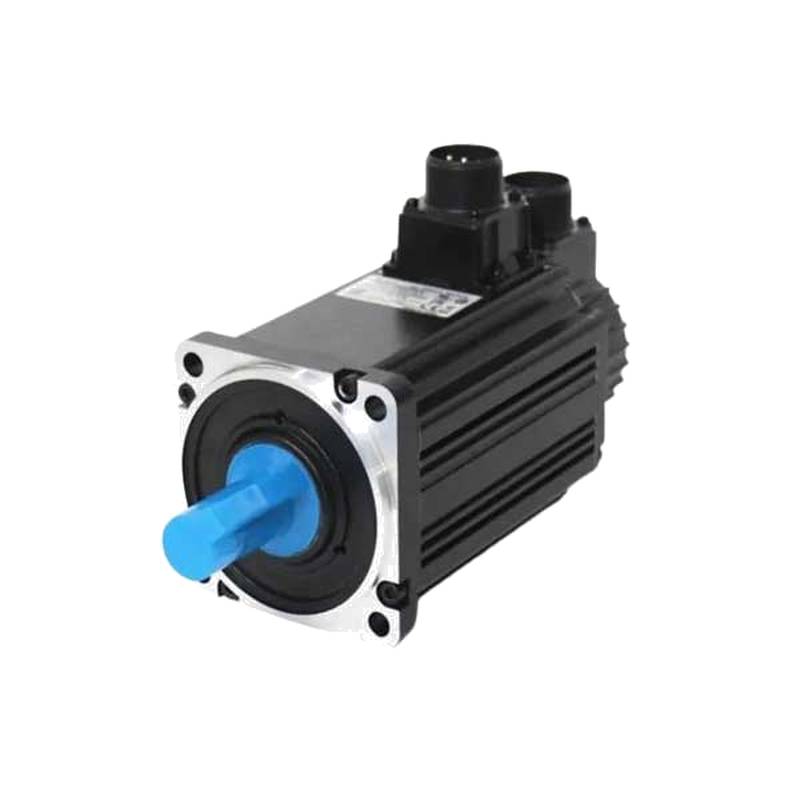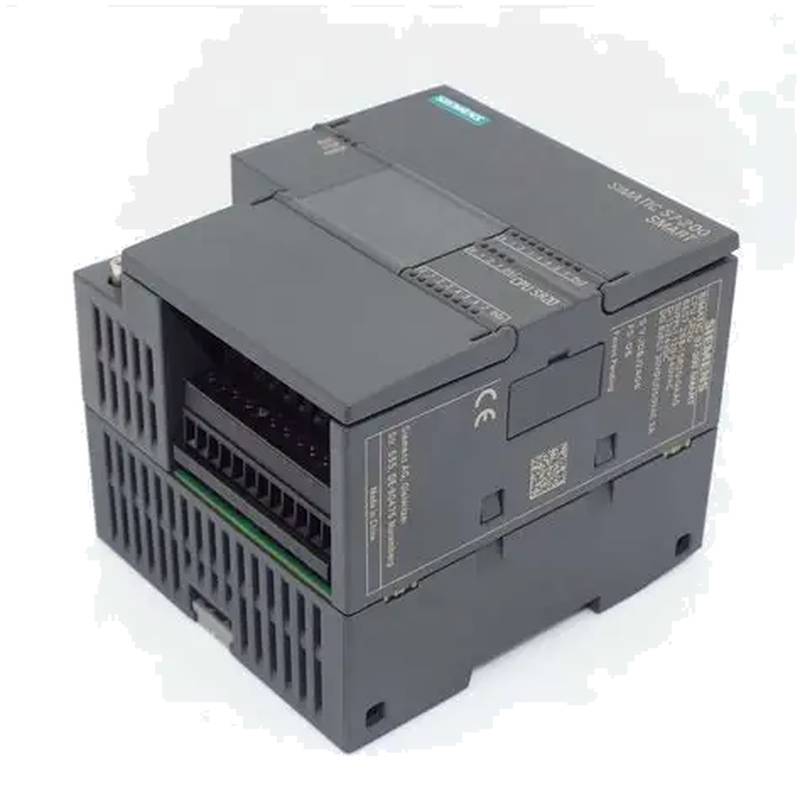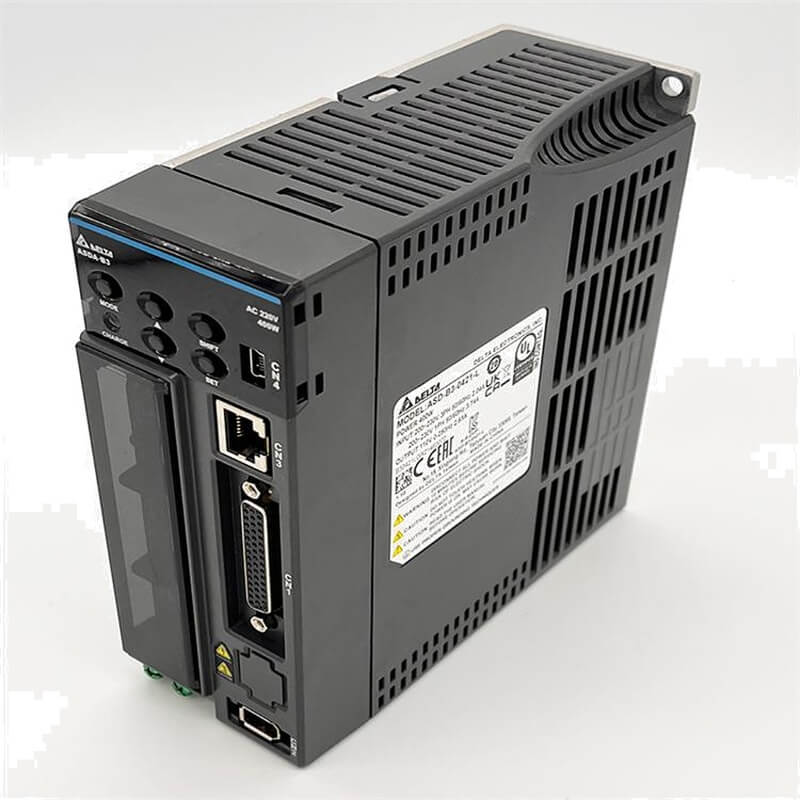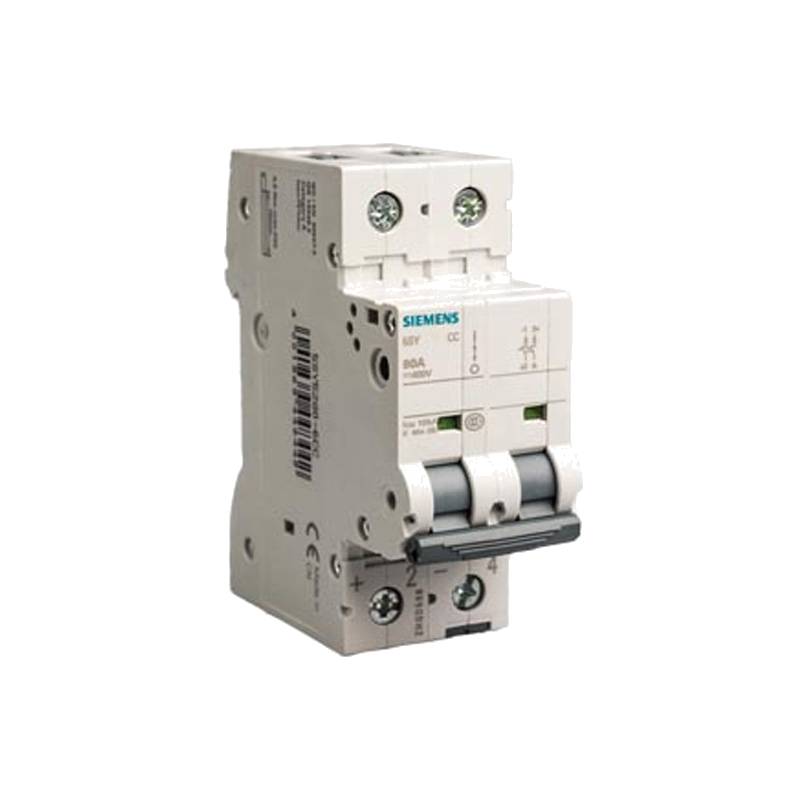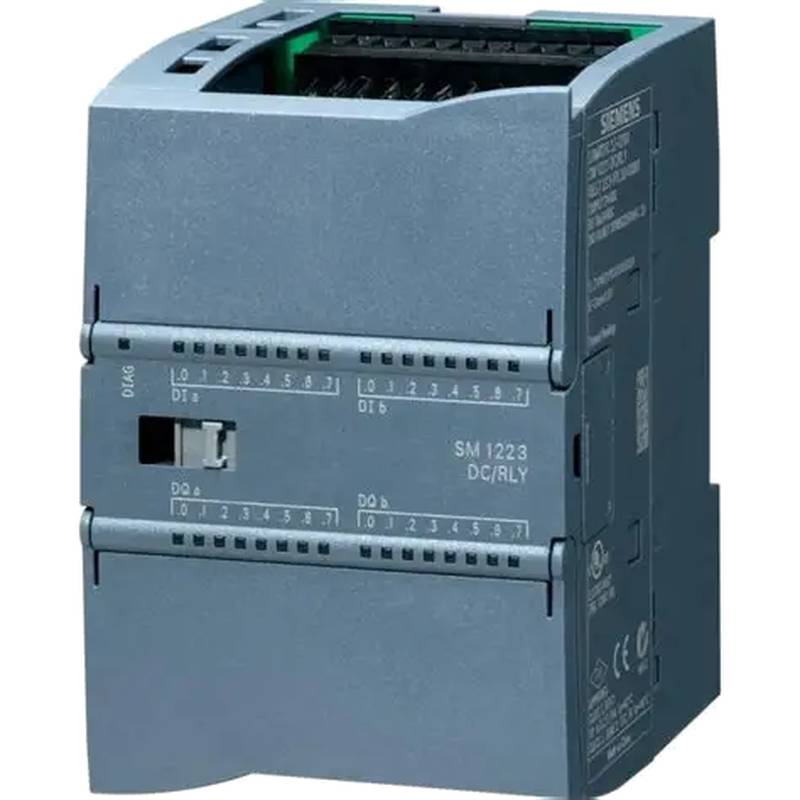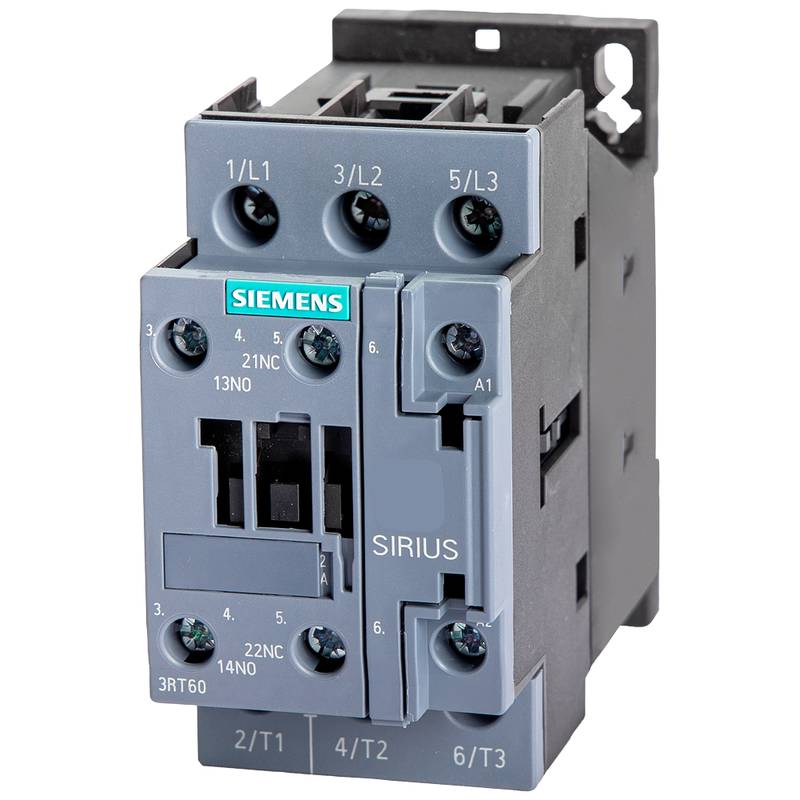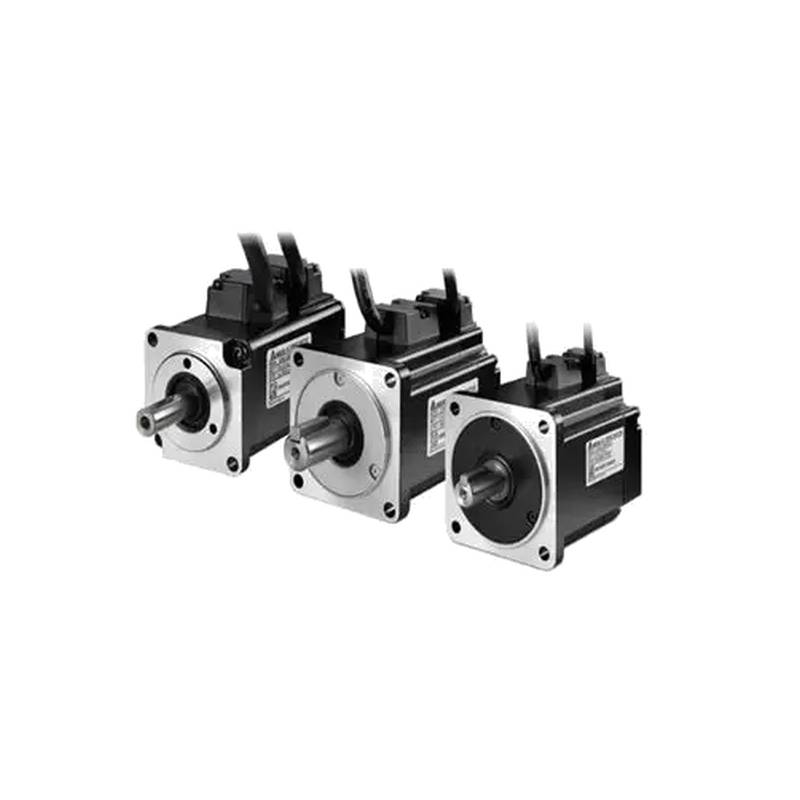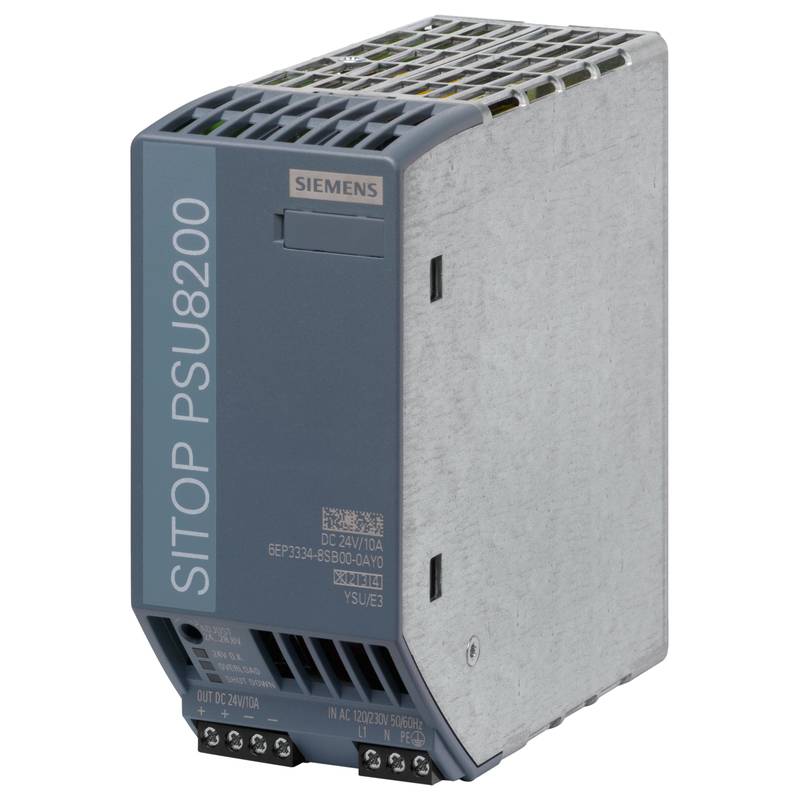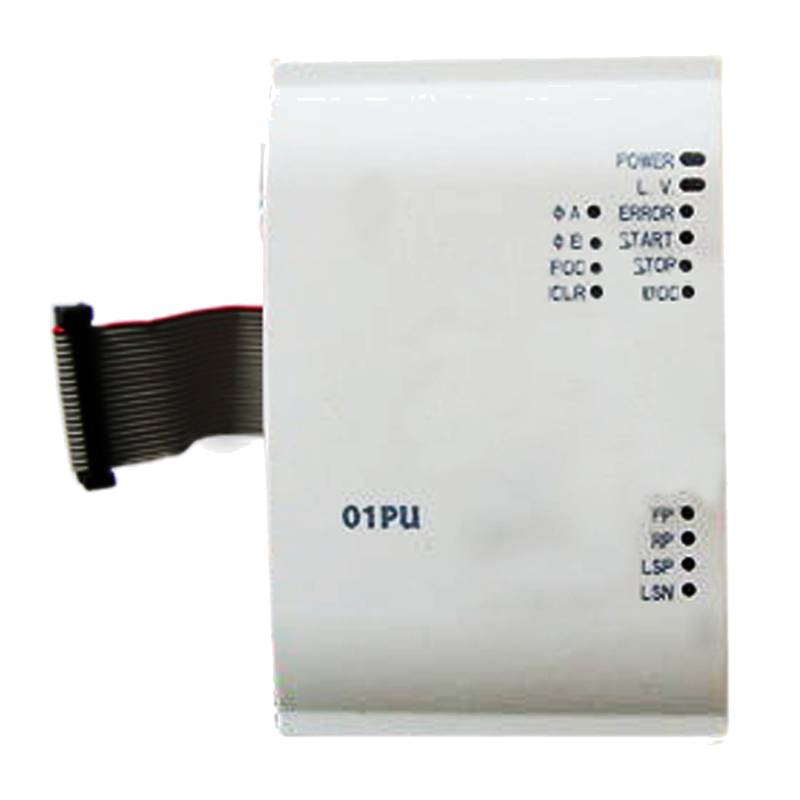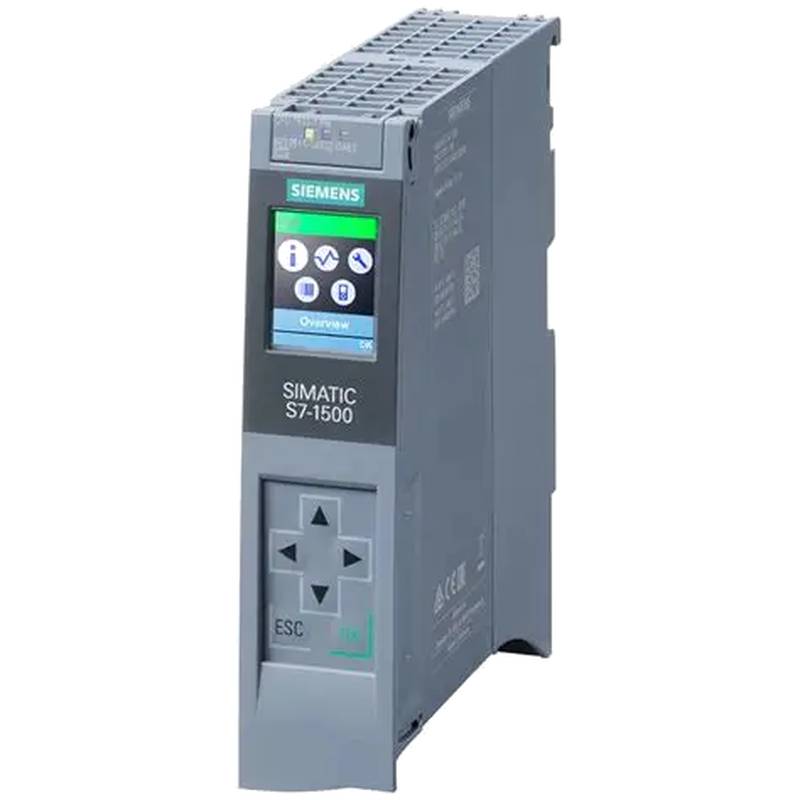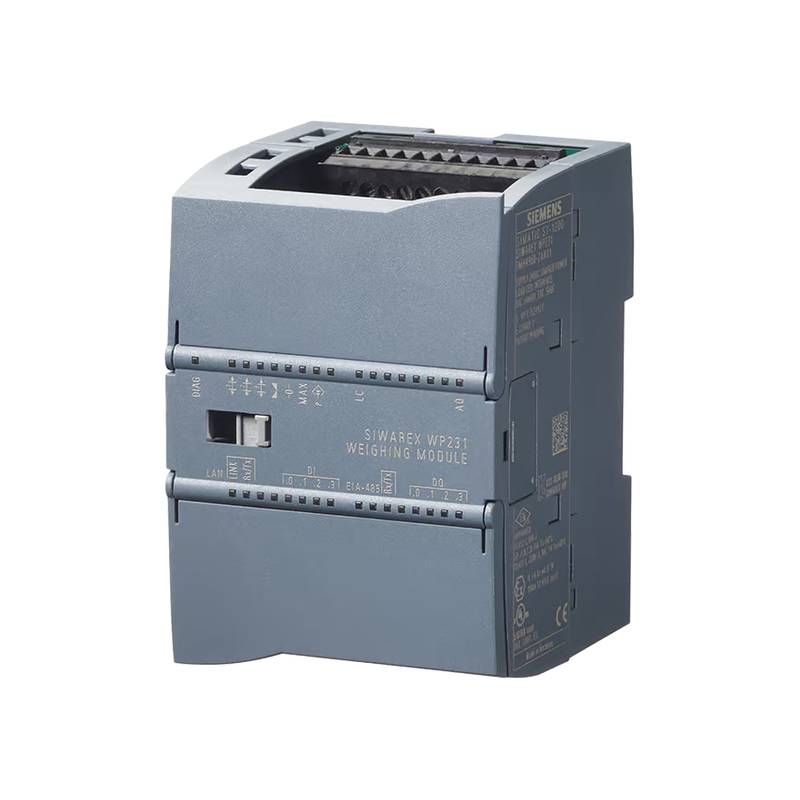
The Delta ECM-B3M-C21010RS1 High Inertia Servo Motor stands as a robust solution for applications demanding precise control and high torque, particularly where significant inertia is a factor. This motor excels in applications requiring smooth acceleration and deceleration, minimizing overshoot and settling time. Its design prioritizes reliability and performance, making it a preferred choice for demanding industrial automation tasks. Key technical parameters include a rated voltage of 200V, a motor code of B3M, and a flange size of 80mm, ensuring compatibility with a wide range of motion control systems.
Product Specifications
| Parameter | Value |
| :---------------- | :-------------------- |
| Rated Voltage | 200V |
| Motor Code | ECM-B3M-C21010RS1 |
| Flange Size | 80mm |
| Rated Speed | 1000 r/min |
| Rated Torque | 5.5 Nm |
| Peak Torque | 16.5 Nm |
| Inertia (kg·m²) | 0.0077 |
| Insulation Class | Class F |
| Protection Class | IP65 |
| Encoder Resolution| 20-bit (Absolute) |
Core Features & Market Positioning
The Delta ECM-B3M-C21010RS1 distinguishes itself through its high inertia design, specifically engineered to handle loads with substantial rotational mass. This characteristic is crucial for applications where sudden changes in speed or direction are common, allowing the motor to maintain stability and accuracy. Its 20-bit absolute encoder provides exceptional positional feedback, ensuring precise movements even after power cycles, a critical advantage over incremental encoders. Positioned as a premium component for demanding automation, it competes effectively with other high-performance servo motors by offering a blend of robust construction, advanced control capabilities, and Delta's established reputation for industrial automation solutions. The motor's Class F insulation and IP65 protection rating further underscore its suitability for challenging industrial environments, offering resistance to dust and water jets.
Key Application Scenarios
This high inertia servo motor is ideally suited for automation tasks involving large or heavy moving parts, such as gantry systems, robotic arms with significant payloads, and large-scale winding or unwinding machinery. Its ability to manage high inertia makes it perfect for applications requiring smooth and controlled starts and stops, like automated material handling, packaging lines, and precision dispensing systems where precise trajectory following is paramount. Industries benefiting from the ECM-B3M-C21010RS1 include automotive manufacturing, electronics assembly, and advanced robotics, where the need for high throughput and consistent product quality is driven by accurate and reliable motion control.
Practical System Integration Guidance
Integrating the Delta ECM-B3M-C21010RS1 servo motor into existing systems typically involves connecting it to a compatible Delta servo drive, such as the ASD-B3 series. Proper wiring is essential, ensuring the motor power cables (U, V, W) and encoder feedback cable are securely connected to the drive. The motor's flange size of 80mm dictates the mechanical mounting interface, requiring a corresponding mounting bracket or direct integration into the machine structure. Commissioning usually involves parameter configuration within the servo drive, including setting motor characteristics, control modes (e.g., position, velocity, torque), and tuning the servo loop for optimal performance based on the application's inertia and dynamic requirements.
Operation and Risk Mitigation
Operating the Delta ECM-B3M-C21010RS1 servo motor requires adherence to safety protocols, including ensuring proper grounding, isolating power during maintenance, and operating within the specified environmental and electrical parameters. Overheating is a potential risk if the motor is continuously operated at or near its peak torque limits without adequate cooling, or if the servo drive is improperly tuned. Fault codes displayed on the associated servo drive can indicate issues such as overcurrent, overvoltage, encoder errors, or thermal overload, each requiring specific troubleshooting steps to mitigate. Always consult the servo drive's manual for detailed fault code explanations and resolution procedures to ensure safe and efficient operation.
Scalability & Long-Term Value
The Delta ECM-B3M-C21010RS1 servo motor offers significant long-term value through its compatibility with Delta's broader automation ecosystem, allowing for seamless integration with PLCs, HMIs, and other motion control components. This interoperability facilitates scalability, enabling users to expand their automated systems by adding more motion axes or more complex control functionalities. As industries increasingly adopt Industry 4.0 principles, the motor's robust design and precise control capabilities align well with requirements for IIoT integration, enabling data collection for predictive maintenance and performance optimization. Its durable construction and high-quality components also contribute to a longer operational lifespan, reducing total cost of ownership.
Frequently Asked Questions
What are the primary benefits of using a high inertia servo motor like the ECM-B3M-C21010RS1?
High inertia motors provide enhanced stability during rapid acceleration and deceleration phases. They excel at managing loads with significant rotational mass, ensuring smoother motion profiles. This capability is critical for applications requiring precise trajectory control and minimizing overshoot.
High inertia motors are designed to absorb and dissipate kinetic energy effectively. This characteristic helps prevent jerky movements and vibrations, leading to improved overall system performance. Their robust design allows for consistent operation under demanding dynamic conditions, ensuring reliability.
Ultimately, the use of a high inertia servo motor like the ECM-B3M-C21010RS1 leads to increased accuracy and repeatability in motion control tasks. This translates to higher product quality and greater efficiency in automated production processes.
How does the 20-bit absolute encoder in the ECM-B3M-C21010RS1 enhance system performance?
The 20-bit absolute encoder provides extremely high positional resolution, offering unparalleled accuracy in motion control applications. It tracks position at all times, even when power is removed from the motor. This eliminates the need for re-homing routines upon system startup.
This advanced feedback mechanism ensures that the system always knows its exact location, preventing position loss errors. The high resolution allows for very fine adjustments and precise interpolation of movement commands. This is crucial for tasks requiring sub-millimeter precision.
The absolute nature of the encoder simplifies system integration and reduces downtime associated with homing sequences. Its reliability ensures consistent performance, making it ideal for critical automation processes where positional integrity is paramount.
What types of industrial applications are best suited for the Delta ECM-B3M-C21010RS1?
This motor is ideal for applications involving the movement of heavy or large objects, such as robotic arm end-effectors with substantial tooling. It is also well-suited for large-scale material handling equipment and complex assembly lines where smooth, controlled motion is essential.
Winding and unwinding machinery, particularly for large rolls of material like paper, textiles, or films, benefit greatly from its high inertia characteristics. These systems require precise tension control and smooth speed regulation, which this motor provides effectively.
Furthermore, applications requiring consistent, repeatable movements over long distances or with significant momentum, such as in large format printing or automated warehousing systems, find this motor to be a highly capable solution.














